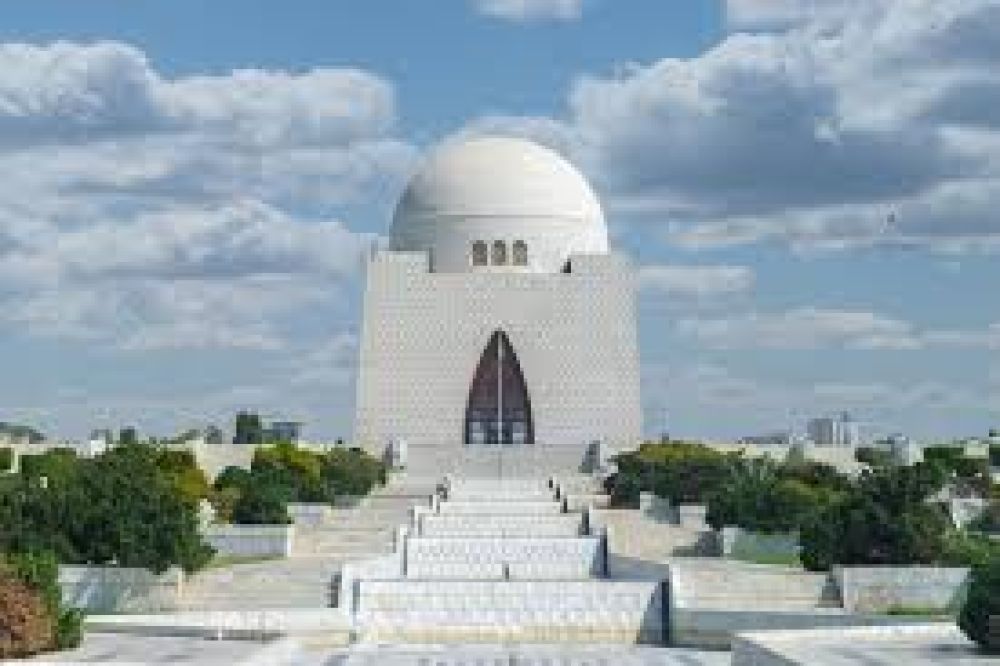

The Mausoleum of Quaid-e-Azam, also known as Mazar-e-Quaid, stands as one of the most esteemed national monuments in Karachi, Pakistan. It is the final resting place of Muhammad Ali Jinnah, the founder of Pakistan. This iconic landmark is not just a mausoleum but a symbol of freedom and a beacon of inspiration for the entire nation.
Quaid-e-Azam, Muhammad Ali Jinnah, passed away on September 11, 1948, a year after Pakistan gained independence. In commemoration of his remarkable leadership and contributions, a mausoleum was constructed to honor him. The construction of this mausoleum started in 1960 and was completed in 1970. It is renowned both for its historical importance and its striking architecture, which draws inspirations from both Mughal and modernist designs.
Designed by the famous architect Yahya Merchant, the mausoleum's structure is bold and reflects a blend of eastern and western architectural principles. Its white marble, the pristine dome, and the surrounding park span an area of 53 hectares, with a sophistication that attracts tourists from all over the world.
Ever since its inauguration, Mazar-e-Quaid has been a focal point for tourists and locals alike. It is revered for not only its architectural beauty but also its cultural significance. Visitors can explore the mausoleum itself, the surrounding gardens, and the impressive museum documenting the life and work of Muhammad Ali Jinnah.
In recent years, efforts have been made to enhance the visitor experience at Quaid-e-Azam's Mausoleum. This includes the introduction of guided tours, cultural exhibits, and the organization of national events on important dates such as Pakistan's Independence Day and Jinnah's birthday. Educational programs aimed at students have also become a pivotal part of the visitor experience.
Tourists are advised to respect the sanctity of the mausoleum, and as such, a dress code is in effect. The best time to visit is from November to March when the weather is cooler. The mausoleum is open to the public seven days a week, although hours may vary during national holidays.
The Quaid-e-Azam's Mausoleum is not just a historical site but also a testament to the enduring legacy of the man who envisioned and struggled for the creation of Pakistan. Representing the ideals of unity, faith, and discipline, the mausoleum provides every visitor with a sense of solemnity and national pride. Its sustained popularity underscores its continued relevance as a focal point of patriotism and a cornerstone of tourism in Karachi.